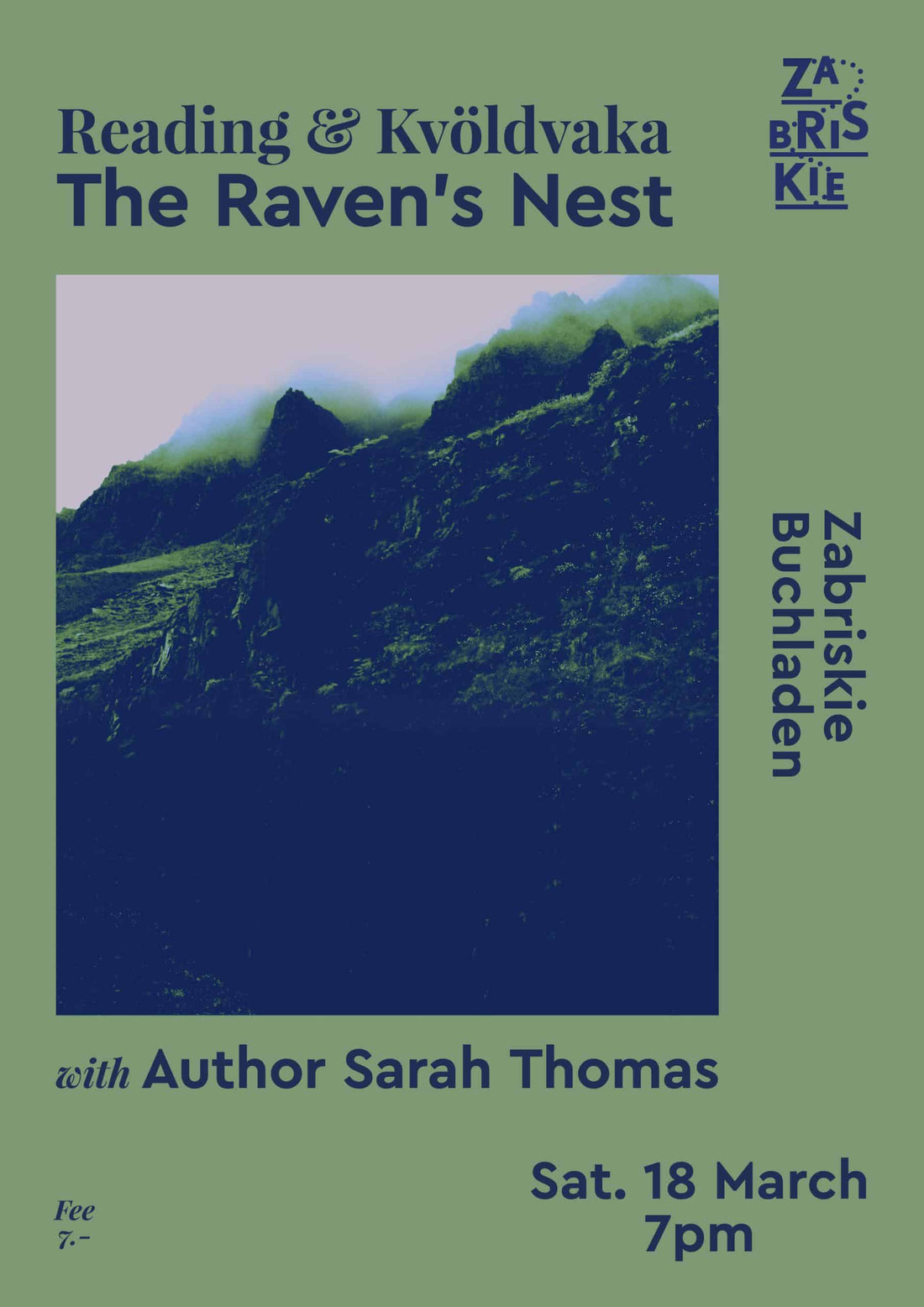On Saturday 18 March, at 7pm CET, English filmmaker, anthropologist and author Sarah Thomas will be joining us to present her book „The Raven’s Nest“ – a beautifully vivid memoir about resilience and learning to belong, set in the elemental landscape of Iceland’s Westfjords. The evening will be held in the style of an Icelandic kvöldvaka: audience members are invited to bring knitting, mending and other handicrafts to make while Sarah Thomas reads aloud (more about kvöldvaka: see below). Afterwards there will be a Q&A and book signing with Sarah.
Entrance fee is 7,- €.
Tickets can be purchased here:
zabriskie.de/product/ticket-ravens-nest-2023
About the book:
Visiting Iceland as an anthropologist and filmmaker in 2008, Sarah Thomas is spellbound by its otherworldly landscape. An immediate love for this country and for Bjarni, a man she meets there, turns a week-long stay into a transformative half-decade, one which radically alters Sarah’s understanding of herself and of the living world.
She embarks on a relationship not only with Bjarni, but with the light, the language and the old wooden house they make their home. She finds a place where the light of the midwinter full moon reflected by snow can be brighter than daylight, where the earth can tremor at any time, and where the word for echo – bergmál – translates as ‘the language of the mountain’.
In the midst of crisis both personal and planetary, as her marriage falls apart, Sarah finds inspiration in the artistry of a raven’s nest: a home which persists through breaking and reweaving – over and over.
Written in beautifully vivid prose The Raven’s Nest is a profoundly moving meditation on place, identity and how we might live in an era of environmental disruption.
About Kvöldvaka:
Literally translated, the word kvöldvaka means “evening wake” – not in the funeral sense, but in the “staying awake” sense. It was essentially a time in the evenings during the long, dark winters, when all the members of a household sat together in the communal living quarters of their turf farmhouses, a single room known as the baðstofa. In this room they lived, slept, worked, and effectively lived out their entire lives. During those winter evenings when it was impossible to labor outside, they worked the wool, sewed garments, made tools, or preserved food. The kvöldvaka was their way of entertaining themselves and each other while they worked, by telling stories, reciting poetry, playing games and so on, as well as reading from the scriptures at the end of the evening. (From the Ancient Origins website)
